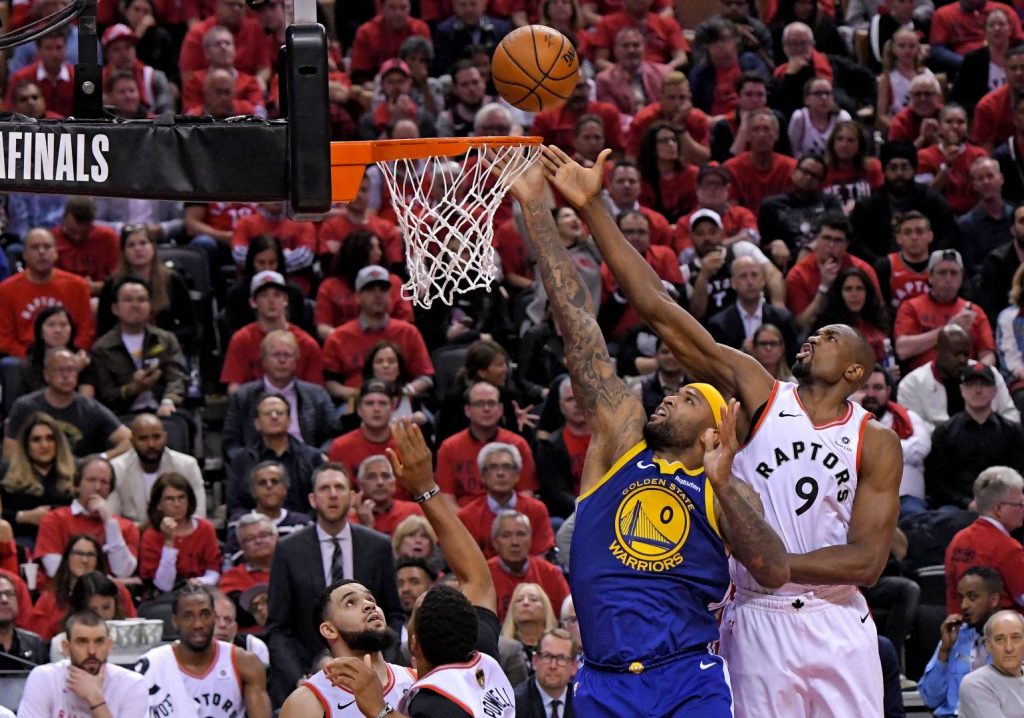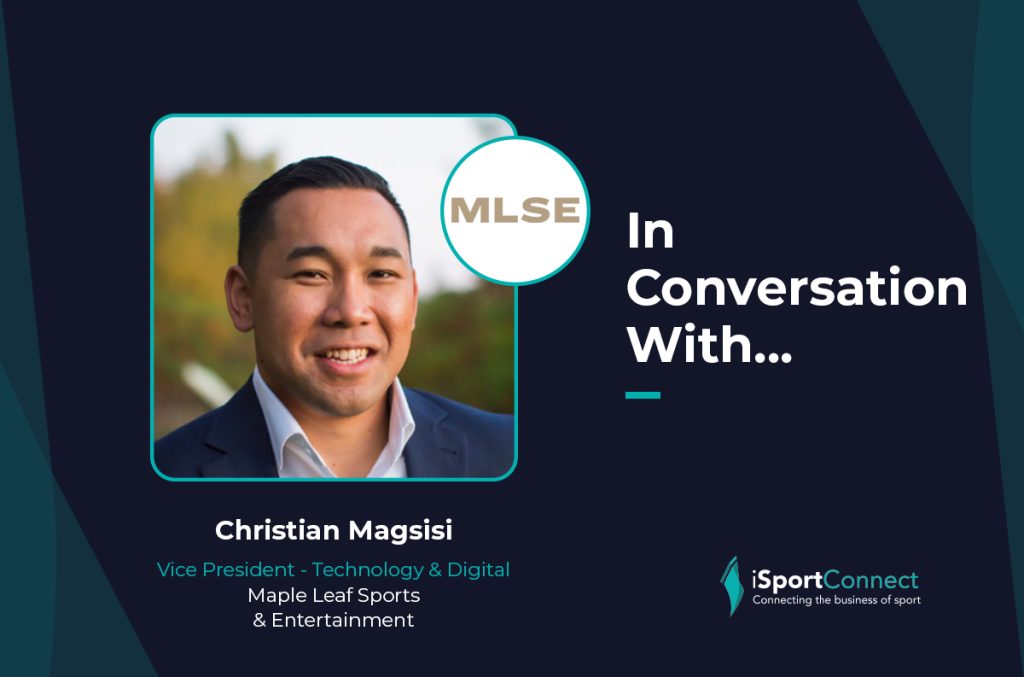Building A Structure To Innovate: “Most Organisations In Sports Can’t Think Past The Next Series Of Games”
March 21, 2022
Toronto-based Maple Leaf Sports & Entertainment is one of the largest and most diversified sports businesses in the world, owning the storied Leafs in the NHL, the Raptors of the NBA and franchises in the MLS and CFL (among others), as well as the Scotiabank Arena, the busiest venue in Canada, and 30,000-capacity BMO Field.
With Rogers Communications and Bell Canada as its parents, MLSE not only comfortably puts digital innovation at the operational forefront but invests in thinking about the future as an in-house function.
The man in charge of that, Christian Magsisi, the company’s Vice President of Technology & Digital, spoke with iSportConnect’s Editor-In-Chief, Jay Stuart, ahead of his participation as a speaker at our Digital & Data Masterclass in London on March 29.
JS: How do you prioritise when you look at something as wide-ranging and fast-changing as innovation?
CM: I think before you get into the specifics of should we do this project, or invest in this new technology, you have to structure the organisation for innovation. We actually dedicate resources ¬ people and money ¬ towards research and development.
“Most organisations in sports can’t think past the next series of games. And you need to change that way of that thinking.”
If you park the technology component for a moment, if you were a business owner and nobody in your business was thinking about next year or the year after, that would probably be a concern for you. But most people operate their businesses that way today, right? Most organisations in sports can’t think past the next series of games. And you need to change that way of that thinking.
We’re four years into the R&D journey, which has been a tremendous transformation. We have a full-scale team that’s dedicated of thinking of things that are not going to affect our business immediately today, and maybe not even for five or even 10 years. We’re also working with our academic communities. Again, I would start with the structure before you focus on the next buzzword or the thing that everybody is talking about in the media.
JS: One of the frustrations in sports is that the big platforms sit in between you and your fans and you can’t really control your own destiny because you don’t have direct access to the data. Is that how you see it?
CM: What’s ultimately important is getting to know who our fans are, and that means not only people who are the people coming into our building but also the people not coming in. The approach that we’ve taken to data, which may be different from others, is less about control and more about collaboration. So, we look to our partnerships, for example.
“If you come to an event with our mobile apps, you just have a better experience being there.”
Our relationship with Scotiabank is integral to the success of the team from business perspective. We can share data back and forth. We work on campaigns and programmes that allow us to do that together in truly collaborative ways that are compliant from a legal perspective. The same goes for our ownership group. Rogers and Bell Canada are the two largest telcos in Canada. And we own our own arena. So we’re in a privileged position in terms of our touch points with fans.
JS: In a world where everybody is attached to their mobile phones, working with telcos must add another dimension of synergy that you can develop.
CM: Of course. If you come to an event with our mobile apps, you just have a better experience being there. Simple things like being able to order food to your seat or talk customer service or get general information for planning your event and knowing what the waiting times are at various places, and of course you can access information of the sports action.

JS: And Rogers is a television company.
CM: They have reach and distribution and they’re interested in sports. It’s tremendously valuable to us. When we want to talk to our broadcasters, our broadcasters are our ownership group. So, we have a level of transparency and a level of collaboration here that may not exist in most markets.
“We’re organically seeing that interest between the teams and we want to nurture that.”
JS: How about the advantages of owning multiple teams? Do fans of the Leafs and Raptors and Argos interact?
CM: Yes, whether it’s just in social media, supporting each other, to making sure that people have an opportunity to enjoy a new sport, we’re organically seeing that interest between the teams and we want to nurture that. We exist to make sports and entertainment available to the city of Toronto and we want to grow the interest in all our sports.
TO FIND OUT MORE INFORMATION ABOUT OUR DIGITAL & DATA MASTERCLASS – CLICK HERE


